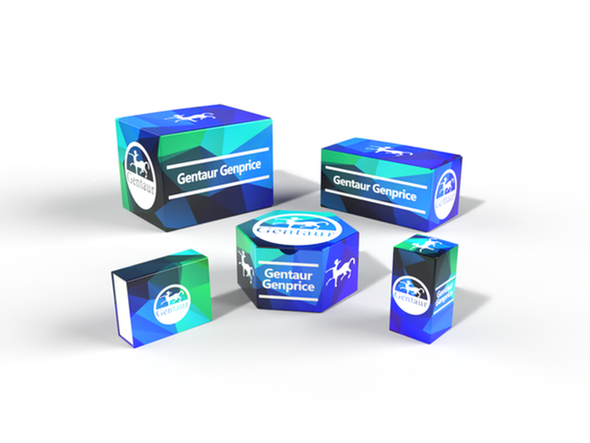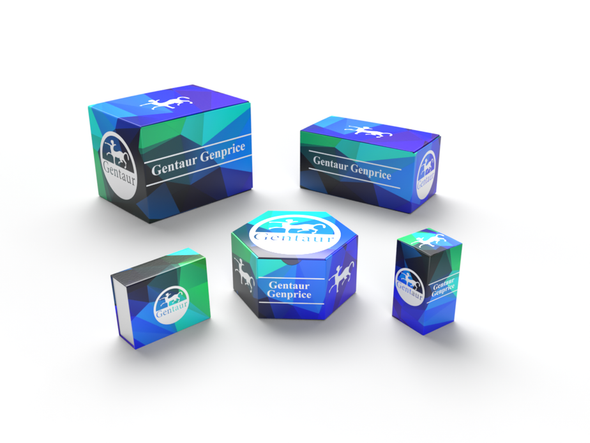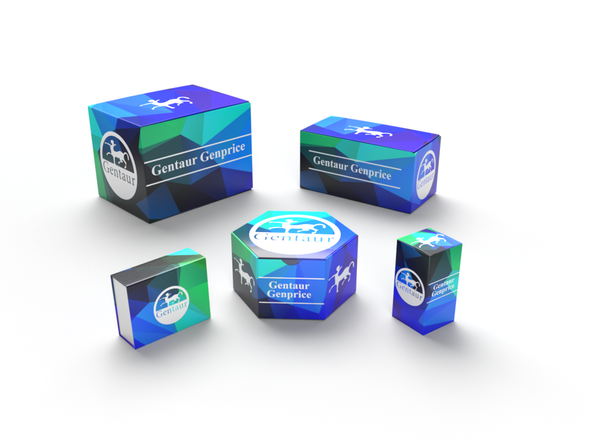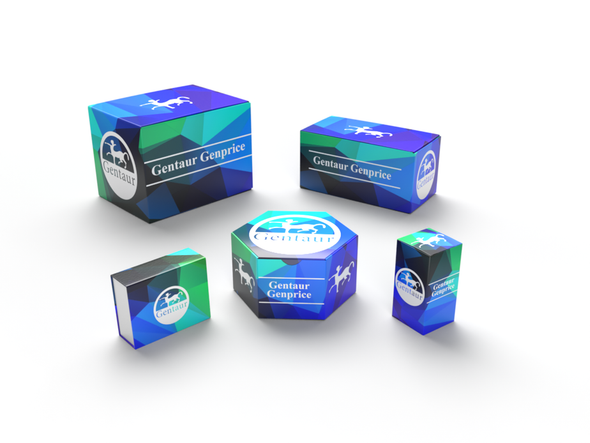Description
ATXN1 Antibody | 13-189 | Gentaur UK, US & Europe Distribution
Host: Rabbit
Reactivity: Human
Homology: N/A
Immunogen: A synthetic peptide of human ATXN1
Research Area: Neuroscience, Signal Transduction
Tested Application: WB, IF
Application: WB: 1:200 - 1:500
IF: 1:20 - 1:50
Specificiy: N/A
Positive Control 1: CEM
Positive Control 2: N/A
Positive Control 3: N/A
Positive Control 4: N/A
Positive Control 5: N/A
Positive Control 6: N/A
Molecular Weight: Observed: 85kDa
Validation: N/A
Isoform: N/A
Purification: Affinity purification
Clonality: Polyclonal
Clone: N/A
Isotype: IgG
Conjugate: Unconjugated
Physical State: Liquid
Buffer: PBS with 0.02% sodium azide, pH7.3.
Concentration: N/A
Storage Condition: Store at 4˚C. Avoid freeze / thaw cycles.
Alternate Name: ATXN1, spinocerebellar ataxia 1 (olivopontocerebellar ataxia 1, autosomal dominant, ataxin 1) , olivopontocerebellar ataxia 1, OTTHUMP00000039306, OTTHUMP00000016065, SCA1, D6S504E, ATX1, ataxin 1, ATXN1
User Note: Optimal dilutions for each application to be determined by the researcher.
BACKGROUND: The autosomal dominant cerebellar ataxias (ADCA) are a heterogeneous group of neurodegenerative disorders characterized by progressive degeneration of the cerebellum, brain stem and spinal cord. Clinically, ADCA has been divided into three groups: ADCA types I-III. ADCAI is genetically heterogeneous, with five genetic loci, designated spinocerebellar ataxia (SCA) 1, 2, 3, 4 and 6, being assigned to five different chromosomes. ADCAII, which always presents with retinal degeneration (SCA7) , and ADCAIII often referred to as the `pure' cerebellar syndrome (SCA5) , are most likely homogeneous disorders. Several SCA genes have been cloned and shown to contain CAG repeats in their coding regions. ADCA is caused by the expansion of the CAG repeats, producing an elongated polyglutamine tract in the corresponding protein. The expanded repeats are variable in size and unstable, usually increasing in size when transmitted to successive generations. The function of the ataxins is not known. This locus has been mapped to chromosome 6, and it has been determined that the diseased allele contains 40-83 CAG repeats, compared to 6-39 in the normal allele, and is associated with spinocerebellar ataxia type 1 (SCA1) . At least two transcript variants encoding the same protein have been found for this gene.






![ATXN1 Antibody (S776) [APG03177G] ATXN1 Antibody (S776) [APG03177G]](https://cdn11.bigcommerce.com/s-1rdwiq712m/images/stencil/590x590/products/57689/57993/gentaur-genprice__26005.1661610467__29809.1661628092__75433.1661676199__77988.1661684280__64362.1661692443__87985.1661854303.png?c=1)